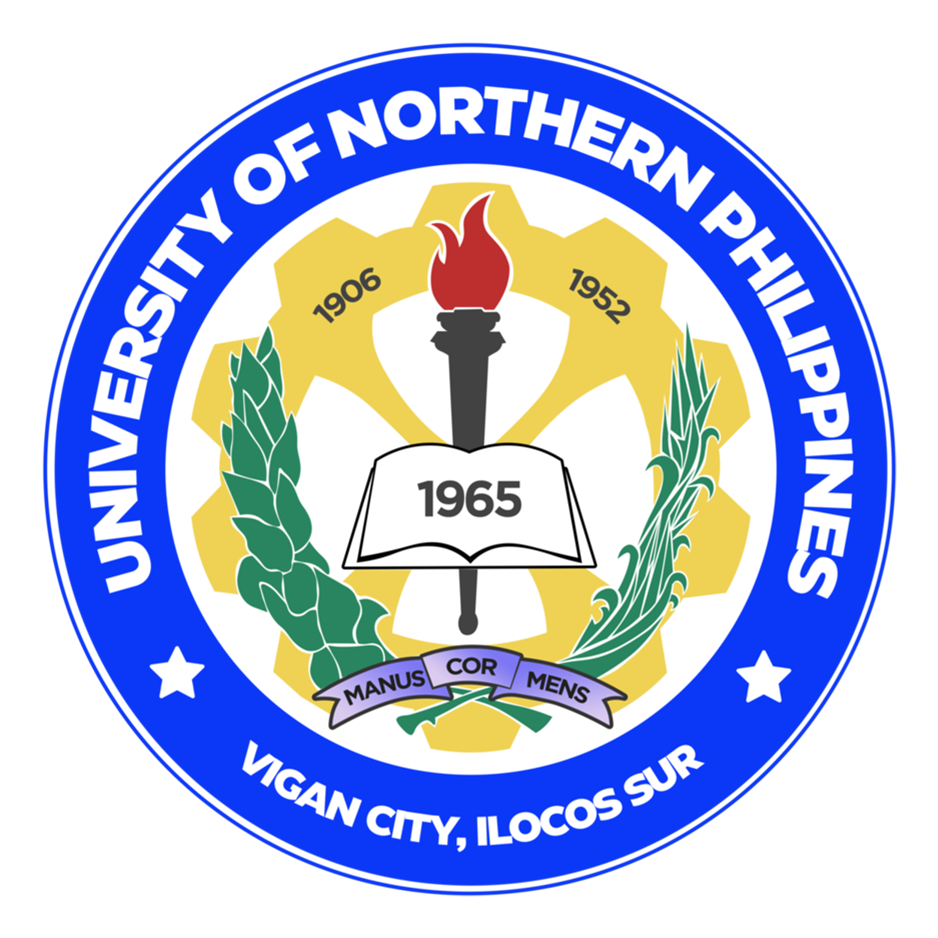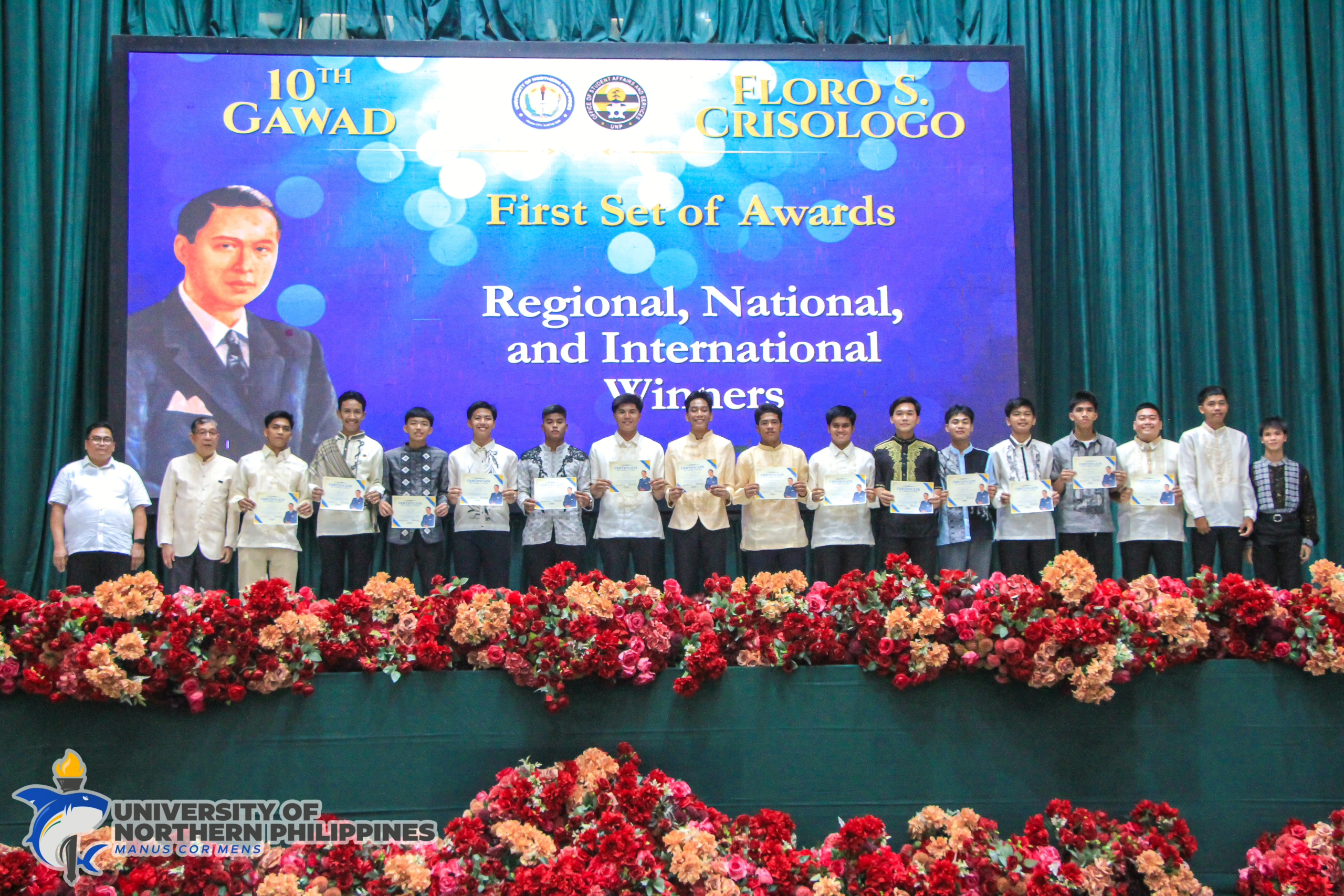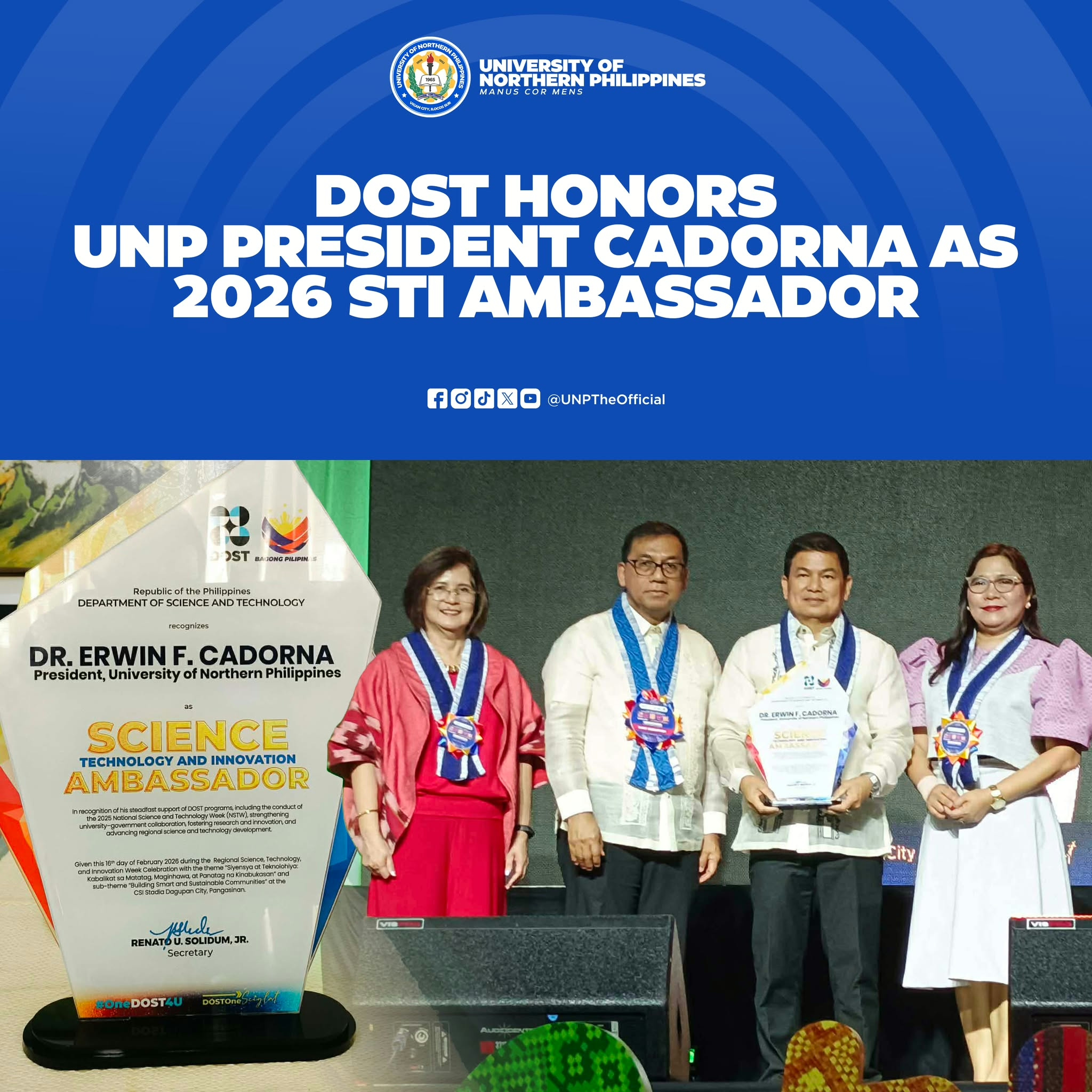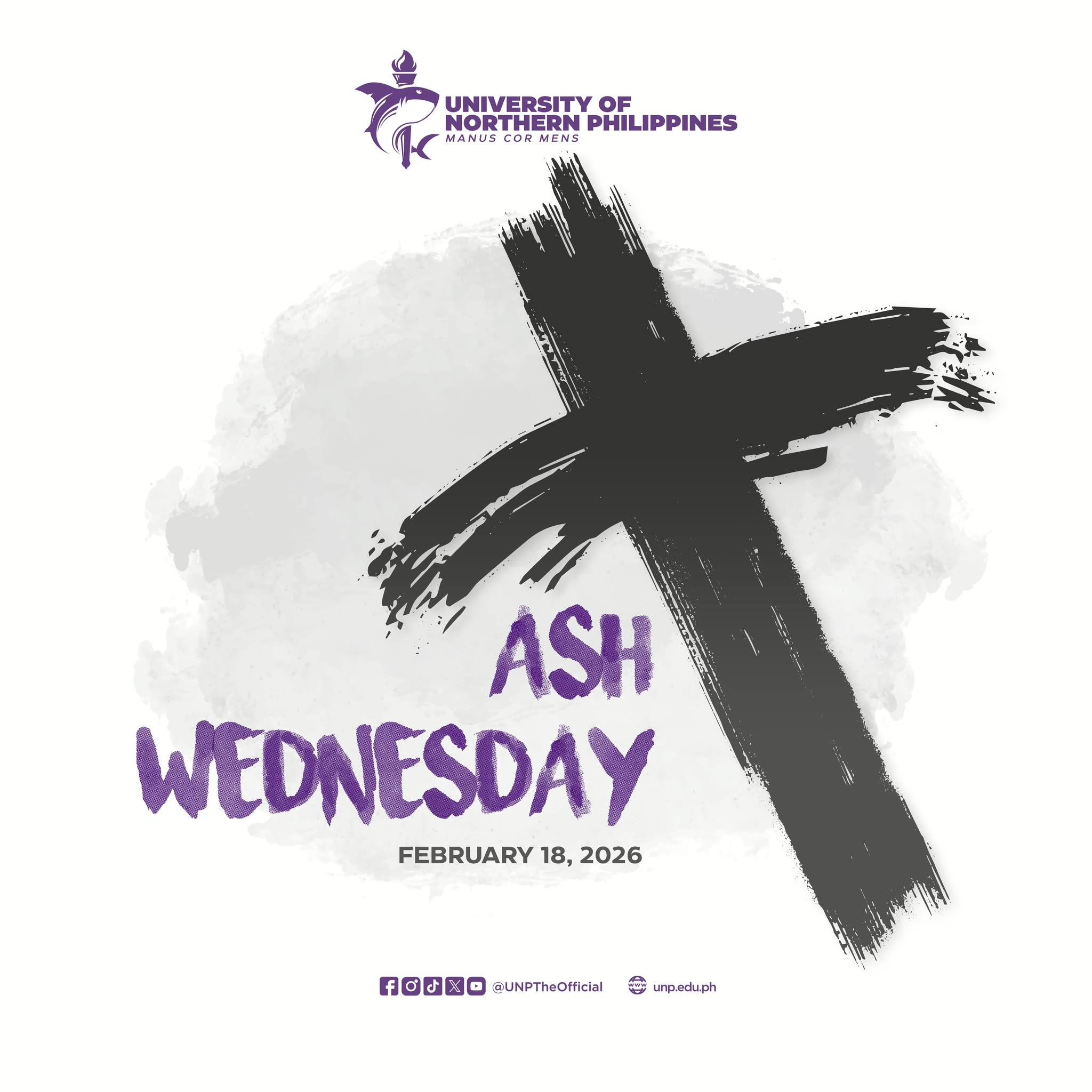The University of Northern Philippines celebrated its 10th Gawad Floro S. Crisologo on May 9, 2025, at the UNP Gymnasium, honoring outstanding students and organizations for their commitment and achievements. The event, themed “Seeds of Dedication, Harvest of Commitment,” brought together university leaders, students, and distinguished guests for an afternoon dedicated to recognizing excellence and service.
Dr. Erwin Cadorna, UNP President, delivered an inspirational message that set the tone for the program, emphasizing the University’s commitment to nurturing leadership and holistic development. Dir. Venus Rebuldela, Regional Director of DSWD Field Office Region III and Guest of Honor, addressed the audience with a keynote speech that inspired students and organizations to pursue excellence and meaningful impact in leadership and service. Both messages resonated with the event’s theme and motivated attendees to embody dedication and commitment within and beyond the university.
The awards ceremony recognized a diverse group of achievers, including officers and advisers of the Student Council, academic unit councils, accredited student organizations, student publication editors, and peer facilitators. Special distinctions such as the Dr. Romualdo B. Tadena Journalism Award, Carmeling P. Crisologo Outstanding Scholar, and Most Gender Sensitive Organization were also presented. Accredited student organizations were honored for their achievements in instruction, creativity, extension, and advocacy, while the prestigious Floro S. Crisologo Outstanding Student Leadership and Organization Awards highlighted the event.
The program concluded with words of gratitude from Student Council President Hon. Noriel Jay Paino and closing remarks by Dr. Mariano Paterno Avila, Director of the Office of Student Affairs and Services. The 10th Gawad Floro S. Crisologo Awards not only celebrated individual and collective achievements but also reinforced UNP’s mission to cultivate a culture of excellence, inclusivity, and service within its academic community.
Article by Kathlene Mae de Castro




